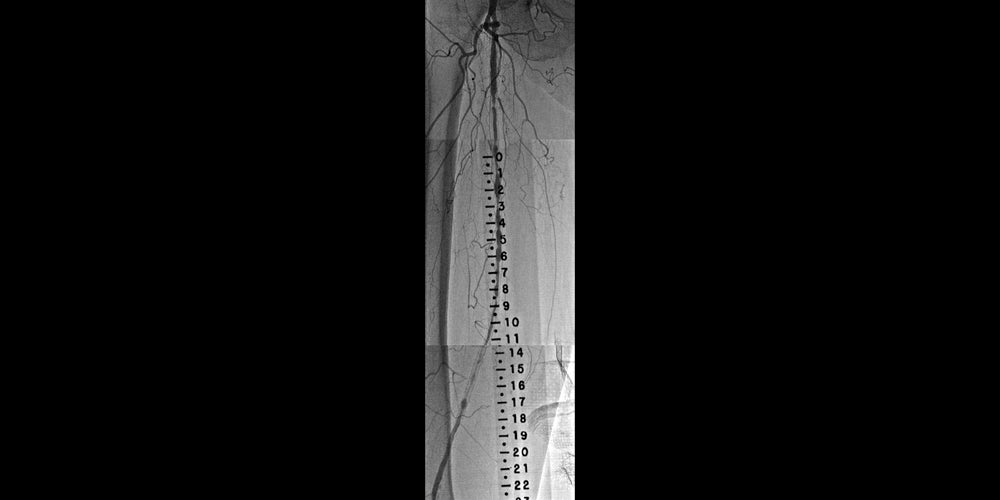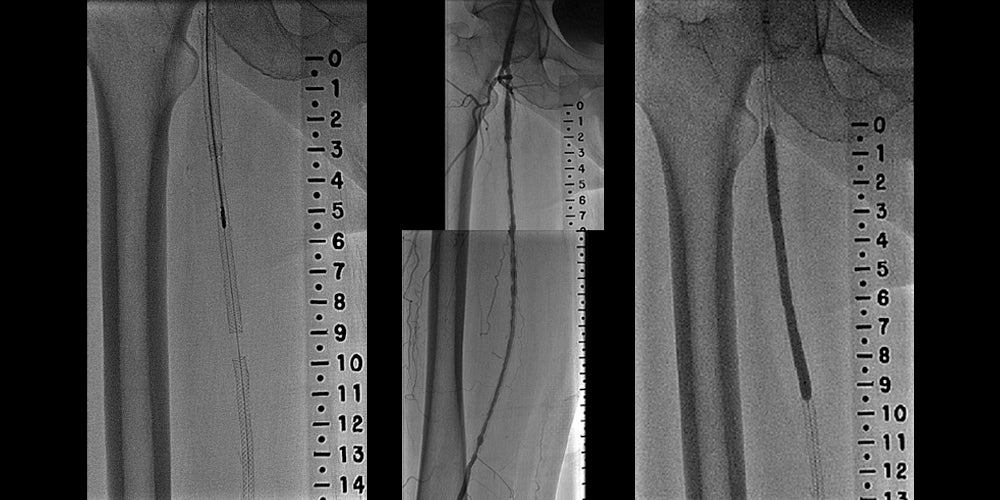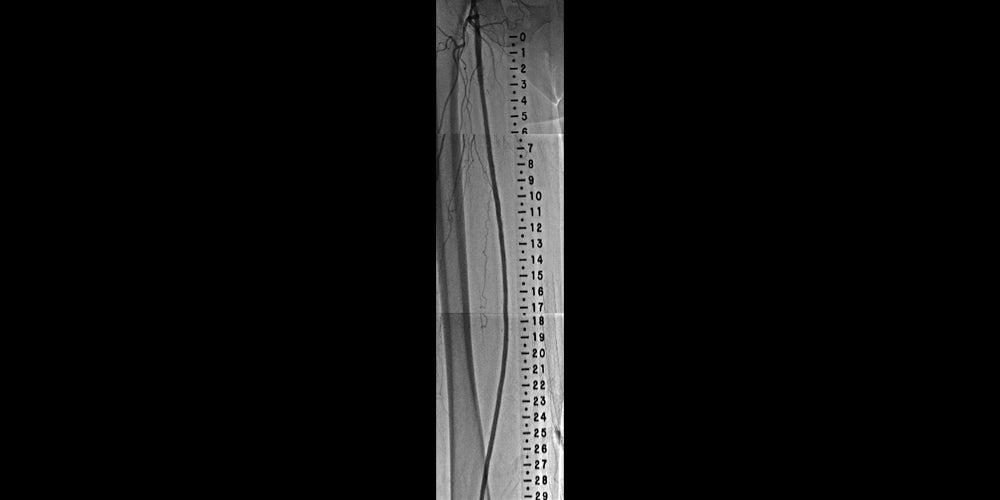Diffuse in-stent restenosis (ISR) in long-stented segment in the superficial femoral artery (SFA)
A case study using the GORE® VIABAHN® Endoprosthesis with PROPATEN Bioactive Surface*
Challenge
- 59-year-old female with right calf claudication
- Relevant patient history:
- Diabetes, hypertension, hyperlipidemia, former smoker
- Previous bare-metal stenting of the right SFA for diffuse disease
- Recurrent severe right calf claudication six months later
Procedure
- Atherectomy with distal embolic protection was used to debulk the lesion
- Stent graft diameters (inflow and outflow) were selected based on the measured diameter of the healthy vessel proximal and distal to the bare-metal stents
- Stent grafts extended a minimum of 1 cm beyond bare-metal stents
Case Takeaways
- The use of the VIABAHN® Device provides an excellent treatment option for ISR in the SFA, particularly when it involves a long stented segment
- Atherectomy can be used as an adjunct to provide debulking of the restenotic tissue, and optimize stent graft expansion
Related case study
* As used by Gore, Heparin Bioactive Surface refers to Gore’s proprietary CBAS® Heparin Surface.
The outcomes and observations reported are based on individual case experience and the patients treated. The steps described here may not be complete, and are not intended to be a replacement for the Instructions for Use (IFU) or the education, training and professional judgment of health care providers (HCP). HCPs remain solely responsible for making decisions about patient care and the use of medical technologies.

Refer to Instructions for Use at eifu.goremedical.com for a complete description of all applicable indications, warnings, precautions and contraindications for the markets where this product is available. RXOnly
INDICATIONS FOR USE IN EUROPE:
The GORE® VIABAHN® Endoprosthesis with PROPATEN Bioactive Surface is indicated for the treatment of:
- de novo or restenotic lesions in the iliac arteries
- de novo or restenotic lesions in the superficial femoral artery and proximal popliteal artery
- in-stent restenotic lesions in the superficial femoral artery and proximal popliteal artery
- stenosis or thrombotic occlusion at the venous anastomosis of synthetic arteriovenous (AV) access grafts and in the venous outflow of dialysis access circuits, including the central veins
- popliteal artery aneurysms and isolated visceral artery aneurysms
- traumatic or iatrogenic vessel injuries in arteries that are located in the chest cavity, abdominal cavity, or pelvis (except for aorta, coronary, innominate, carotid, vertebral, and pulmonary arteries)
CONTRAINDICATIONS:
- Non-compliant lesions where full expansion of an angioplasty balloon catheter was not achieved during pre-dilatation, or where lesions cannot be dilated sufficiently to allow passage of the delivery system.
- Do not use the GORE® VIABAHN® Endoprosthesis with PROPATEN Bioactive Surface in patients with known hypersensitivity to heparin, including those patients who have had a previous incident of Heparin-Induced Thrombocytopenia (HIT) type II.





